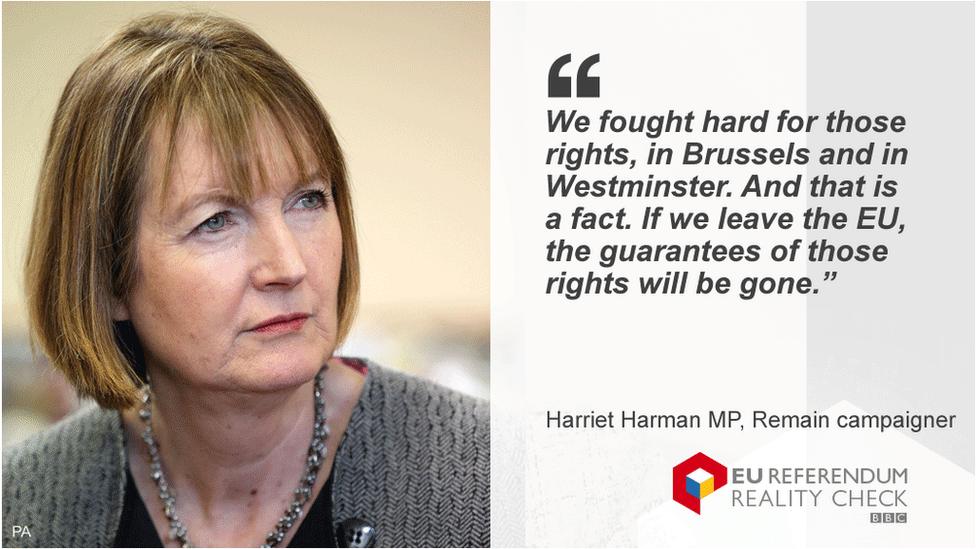Reality Check: Does the EU guarantee women's rights?
- Published

The claim: Membership of the European Union guarantees rights on equal pay, sexual harassment and maternity leave, and rights for part-time workers. Those rights would be in jeopardy if Britain voted to leave.
Reality Check Verdict: The EU has been influential in the development of equality legislation but leaving would not necessarily mean those rights would be lost.
Labour's former deputy leader Harriet Harman is right to say that the EU has been important in the development of UK law that affects women's right.
The Treaty of Rome included the commitment for member states to ensure "that men and women should receive equal pay for equal work". And the rules were strengthened following the 1975 Equal Pay Directive, and subsequent rulings by the European Court of Justice (ECJ), which have set out further what counts as equal work.
Similarly, the right of part-time workers to join occupational pension schemes was determined by rulings of the ECJ, which found that excluding them constituted indirect sex discrimination.
If Britain leaves the EU those rules could, in principle, be revoked.
However, in some cases the UK government has gone further than the rules set by the EU. For example, the 52 weeks of statutory maternity leave in the UK is considerably longer than the 14 weeks guaranteed by EU law.
Leave campaigners say there's no reason to suppose that a future British government would undermine women's rights.
But Ms Harman believes that many of the people leading the campaign for Brexit - including Boris Johnson, Nigel Farage and Iain Duncan Smith - cannot be trusted to protect women's rights.
She admits that this part of her argument is speculative, but she warns that women's rights could be eroded under the guise of pushing for deregulation and cutting red tape.



- Published22 February 2016
